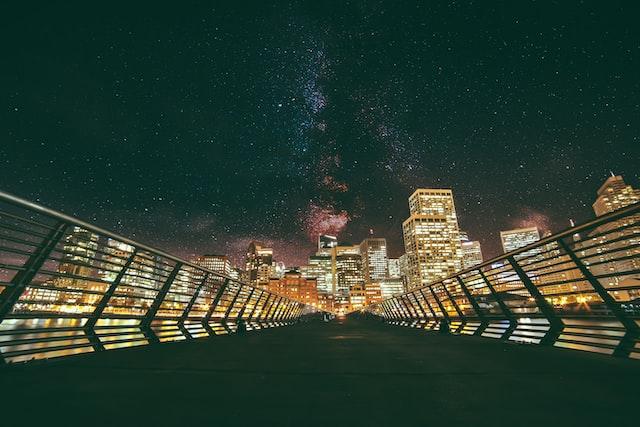Can You Do Astrophotography in a City?
Astrophotography is a popular hobby that involves capturing images of celestial objects such as stars, galaxies, and nebulae.
Many people assume that astrophotography can only be done in locations with very little light pollution, such as remote forests or mountain tops.
But is it possible to do astrophotography in a city, where light pollution is often much higher and the sky is often filled with the glow of streetlights and buildings?
In this article, we will explore the challenges and opportunities of doing astrophotography in a city environment, and provide tips and techniques for capturing stunning images of the night sky even in the midst of urban light pollution.
Table of Contents

Can You Do Astrophotography in a City?
Astrophotography is the art of capturing images of celestial objects such as stars, galaxies, and nebulae.
Many people assume that astrophotography can only be done in locations with very little light pollution, such as remote forests or mountain tops.
But can you do astrophotography in a city, where light pollution is often much higher and the sky is often filled with the glow of streetlights and buildings?
The short answer is yes, it is possible to do astrophotography in a city. While it may be more challenging to capture the beauty of the night sky in an urban environment, it is not impossible.
With the right equipment, techniques, and planning, it is possible to capture stunning images of the night sky even in the midst of urban light pollution.
One of the biggest challenges of doing astrophotography in a city is light pollution.
Urban areas are often filled with the glow of streetlights and buildings, which can make it difficult to see faint celestial objects. In addition, light pollution can cause reflections and halos in your images, which can reduce contrast and clarity.
However, there are ways to minimize the effects of light pollution and still capture stunning images of the night sky. One approach is to find a location that has relatively low light pollution, such as a park or a high-elevation viewpoint.
Another option is to use specialized filters that block out the wavelengths of light that are emitted by streetlights and other artificial sources.
In addition to light pollution, another challenge of doing astrophotography in a city is the lack of clear, dark skies.
The clouds, haze, and atmospheric conditions in a city can make it difficult to see celestial objects, even on a clear night.
However, with some planning and patience, it is still possible to capture beautiful images of the night sky even in an urban environment.
Can You do Astrophotography in a City with a lot of Light Pollution?
It’s possible to do astrophotography in a city with a lot of light pollution, but it may be more challenging compared to doing astrophotography in locations with less light pollution.
Light pollution refers to the excess artificial light that is emitted by streetlights, buildings, and other sources, and it can make it difficult to see celestial objects in the night sky.
In addition, light pollution can cause reflections and halos in your images, which can reduce contrast and clarity.
It’s important to plan your shoot carefully and choose the right equipment and techniques to suit the specific conditions and goals of your photograph.
Ultimately, the success of your astrophotography in a city with a lot of light pollution will depend on a variety of factors, including the specific location, the equipment and techniques you use, and the atmospheric conditions.
With some careful planning and experimentation, it is possible to capture beautiful images of the night sky even in an urban environment.
Can You Do Astrophotography in a City?: Final Thoughts
It’s possible to do astrophotography in a city, although it may be more challenging compared to doing astrophotography in locations with less light pollution.
There are ways to minimize the effects of light pollution and still capture stunning images of the night sky in a city, such as finding a location with low light pollution or using specialized filters.
If plan your shoot carefully and choose the right equipment and techniques to suit the specific conditions and goals of your photograph, you can come away with some very good astrophotography images.
Additional Resources
Here are a few articles that are sure to be very helpful for anyone interested in astrophotography:
Best Nikon Camera for Astrophotography and Best Nikon Lenses for Astrophotography
Best Canon Lenses for Astrophotography
Check out our Gear page to read more articles just like this with up-to-date product reviews for gear across all photography genres.

